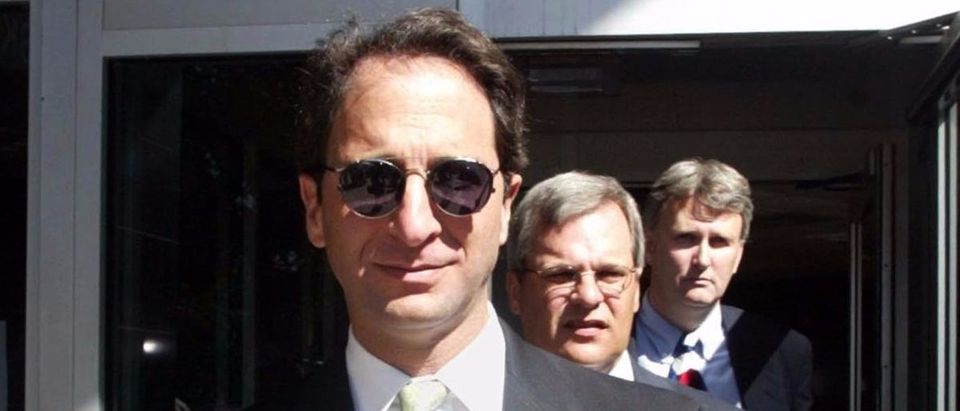Long before Donald Trump ran for president or most people had heard of Paul Manafort, fabled Judge Alex Kozinski proclaimed a veritable epidemic of prosecutorial misconduct. The Wall Street Journal, The Los Angeles Times and even The New York Times joined the Kozinski chorus. Abuses of power by prosecutors have changed the balance of power in the United States Senate and sent countless innocent people to prison.
Prosecutors have unbridled discretion. With the stroke of a pen, they can indict and ruin anyone, while they enjoy immunity from suit and are rarely even rebuked.
Now, those close to the president have crossed the scope of a squad of prosecutors highly trained and experienced in abuses of that power — especially Andrew Weissmann, who just indicted Manafort and Richard Gates.
Mr. Weissmann has been portrayed recently as having “unimpeachable ethics” and as “the prosecutor you would want” if your family member was innocent. He was extolled for having “a hunch” that a former treasurer of Enron was “willing to say more” and would “cooperate.”
But what do the cases and indisputable facts show?
Let’s start with Mr. Weissmann’s “hunch” that young Enron treasurer Ben Glisan was ready to “cooperate.” Mr. Glisan was about 30 years old when Enron CFO Andrew Fastow — then a cover-boy for CFO Magazine — conned Glisan into one of Fastow’s fraudulent get-rich-quick schemes.
Mr. Glisan was an easy squeeze for prosecutors like Mr. Weissmann who honed for their own uses the tactics of organized crime bosses they convicted. Ben Glisan had made a fast million dollars, had a young family, and he was guilty. Weissmann charged him quickly with an onerous 26 counts. Mr. Glisan pleaded guilty to a five-year count and just wanted to do his time. The problem was he refused to “cooperate” with Mr. Weissmann.
Federal authorities took Mr. Glisan to prison. He was placed straight into solitary confinement — a hole of a cell with a slit for light and barely enough room to stand. Men far tougher than Ben Glisan will tell you that 24 hours in solitary confinement can drive a man insane.
Mr. Weissmann and his Enron Task Force left Mr. Glisan in solitary for almost two weeks. The broken Ben Glisan then faced hardened criminals in the daily prison population. That is how Mr. Weissmann got that “hunch.”
As for “the prosecutor you would want if you were innocent,” four former Merrill Lynch executives beg to differ. Mr. Weissmann ran the grand jury interrogating many of the witnesses and at least one of the defendants. He then sat in the courtroom with his arm around Houston Chronicle reporter Mary Flood and oversaw every aspect of the prosecution. The prosecutors obtained convictions against Merrill Lynch employee Bill Fuhs and three superiors.
Mr. Fuhs, like Ben Glisan, was about 30 years old with a young family. He had steadfastly maintained his innocence and merely handled the paperwork for a transaction which had been taken through all the steps within Merrill Lynch by Merrill’s own in-house counsel.
Weissmann’s team vehemently argued against allowing the defendants bail pending their appeals. They sent Bill Fuhs to a maximum security federal transfer facility with the worst federal prisoners imaginable — hundreds of miles from his little children.
Eight months later, the Fifth Circuit Court of Appeals completely exonerated Mr. Fuhs and ordered his release from prison within three weeks of the oral argument — before the court even issued its decision.
Mr. Fuhs will not speak of what he endured.
The Fifth Circuit held that the conduct of the Merrill defendants was not criminal as charged — and the indictment was “flawed.”
Mr. Weissmann had made up a crime.
The Merrill executives suffered up to a year of wrongful imprisonment. They were all released.
As for Mr. Weissmann’s ethics, the ethical rules to which prosecutors are supposed to be held require the prosecutor to disclose all evidence that may be helpful to a defendant. Mr. Weissmann and his team did the opposite.
They yellow-highlighted the statements of witnesses most helpful to the defense long before the trial. They threatened those witnesses with indictments which kept them from talking with the defense, and they gave the defendants incomplete and affirmatively misleading “summaries” of what those witnesses would say.
The Fifth Circuit held the prosecutors “plainly suppressed” evidence favorable to the defense — enough for an ethics violation but not for reversal of the only two convictions that survived the first appeal while the evidence was still hidden.
One of the country’s leading legal ethics experts, Bill Hodes, filed a substantial grievance with hundreds of pages of exhibits against Mr. Weissmann with the New York Bar. (I co-signed.)
At the time, Mr. Mueller had already brought Mr. Weissmann under his wing at the FBI, so the Department of Justice was defending Mr. Weissmann against the grievance for which he could have been disbarred.
What happened to that grievance? The New York Bar kept it for several months.
Unexpectedly, we received a declination letter from the “Office of Professional Responsibility” for the Department of Justice. With no notice, the New York Bar had slipped the grievance to the Department of Justice to decide a serious complaint that the Department of Justice was defending.
The federal swamp is deep, dense, and deceiving. It is infested with a corrupt cabal that protects its own, and it can’t be drained fast enough.
Sidney Powell (@SidneyPowell1) was a federal prosecutor in three districts under nine U.S. attorneys from both political parties, then in private practice now for more than 20 years. She is a past president of the Bar Association of the 5th Federal Circuit and of the American Academy of Appellate Lawyers. A veteran of 500 federal appeals, she published “Licensed to Lie: Exposing Corruption in the Department of Justice.” She consulted with Arthur Andersen on appeal and represented one of the Merrill Executives.


